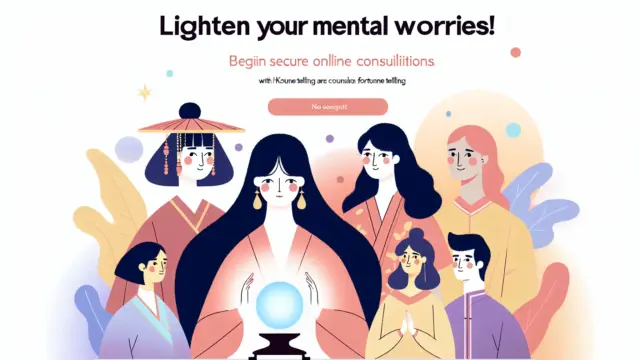Unlocking the mysteries of men’s love psychology can be the key to understanding the dynamics of relationships. Whether you’re trying to connect with a partner or navigate through tricky emotional waters, knowing how men think and feel about love can truly make a difference. This article will dive into the intricacies of male psychology, shedding light on common challenges and offering practical tips to enhance communication and emotional connections.
By exploring the relationship between self-esteem and love, as well as the impact of social expectations, you’ll gain insight into what drives men in romantic scenarios. Get ready to unlock the secrets to better communication and deeper emotional ties that can lead to a more fulfilling relationship.
- Discover how male thought processes influence relationships and common issues they face.
- Learn about the psychological factors that shape men’s love and self-esteem.
- Gain effective communication skills to strengthen emotional connections.
Understanding Male Love Psychology
Male Thought Processes in Relationships
When it comes to love, men often approach relationships with a unique mindset. Understanding how they think can significantly improve your interactions and emotional connections. For many men, feelings are closely tied to actions. This means that they might express love through doing things for their partner rather than articulating their feelings verbally. This behavior can sometimes lead to misunderstandings, where women may feel unloved if their partner doesn’t communicate affection in a conventional way.
Moreover, men often grapple with societal expectations. They’re raised to be strong and self-sufficient, which can create barriers when it comes to expressing vulnerability. This can lead to hesitance in opening up emotionally, making it essential for partners to create a safe space for them to share their feelings. By encouraging open dialogue, you can help bridge the gap between emotional expression and the often stoic nature associated with masculinity.
It’s also interesting to note that men tend to compartmentalize their feelings. This means they may separate their thoughts about work, relationships, and personal issues, often focusing on one at a time. This can sometimes make it difficult for them to connect the dots between their feelings and actions, which is why patience and understanding from partners are crucial.
Ultimately, by recognizing these thought processes, you can foster a deeper connection that encourages emotional openness. This understanding paves the way for a more harmonious relationship where both partners feel valued and understood.
- Men often express love through actions rather than words.
- Societal expectations can create barriers to emotional vulnerability.
- Compartmentalizing feelings may make emotional connections challenging.
Common Relationship Issues Faced by Men
Men face a variety of challenges in relationships that can stem from both internal and external factors. One major issue is the fear of rejection. Many men worry about how their feelings will be received, which can lead to hesitance in expressing their true emotions. This fear can create a cycle of misunderstanding, where partners might feel distant or unloved, all because the man is afraid to take the emotional leap.
Additionally, communication barriers can arise due to different styles of expression. While some men may prefer direct conversations, others might be more comfortable with non-verbal cues. This can lead to confusion and frustration for both partners, especially if the woman is looking for more verbal affirmations of love. Encouraging a dialogue about how each partner prefers to communicate can help alleviate these issues.
Navigating these common challenges doesn’t have to be daunting. By fostering an environment of understanding and open communication, both partners can learn to support each other more effectively. This mutual support is key to building a strong emotional foundation that can weather any storm.
- Fear of rejection can prevent men from expressing their feelings.
- Different communication styles can lead to misunderstandings.
- Open dialogue about communication preferences can strengthen relationships.
Psychological Factors Influencing Love
The Connection Between Self-Esteem and Love
Self-esteem plays a crucial role in how men experience love and relationships. When a man has high self-esteem, he is more likely to approach love with confidence and openness. This can lead to healthier interactions and a stronger emotional connection with his partner. Conversely, low self-esteem can create insecurities that may hinder his ability to express feelings or engage fully in a relationship.
Understanding this connection can help partners support each other better. For instance, encouraging positive affirmations and providing reassurance can boost a man’s self-esteem, making him feel more secure in expressing love. This nurturing environment helps bridge the emotional gap, allowing both partners to connect on a deeper level.
Moreover, acknowledging the role of self-esteem can also lead to discussions about personal growth. When both partners work on building each other’s confidence, they create a foundation for a more fulfilling romantic experience. This can transform the dynamics of a relationship, fostering a sense of partnership where both individuals feel valued and loved.
- High self-esteem promotes confidence in love.
- Low self-esteem can lead to insecurity in relationships.
- Supporting each other’s growth enhances emotional connections.
Social Expectations and Male Psychology
Social expectations significantly shape male psychology, particularly in the context of love and relationships. Men are often socialized to embody traits like strength, independence, and emotional restraint. While these traits can be beneficial, they can also create pressure to conform to certain ideals, making it difficult for men to express vulnerability.
This pressure can lead to misunderstandings in relationships, where partners may misinterpret a man’s reluctance to share his feelings as a lack of interest or affection. It’s essential for partners to recognize that these societal norms can influence behavior. By fostering an environment where emotional expression is encouraged, partners can help men feel safe to share their thoughts and feelings.
Additionally, breaking down these social expectations can lead to healthier relationship dynamics. When men feel free to express their emotions, it not only enriches their own experience but also deepens the emotional bond with their partner. This shift can lead to a more balanced relationship where both partners feel empowered to share their true selves.
- Social expectations shape how men express emotions.
- Emotional restraint can lead to misunderstandings in relationships.
- Encouraging vulnerability fosters deeper connections.
Communication Skills for Relationship Success
Effective Listening and Expressing
In any relationship, communication is vital for building strong emotional connections. For men, developing effective listening skills can significantly enhance their ability to understand their partners’ feelings and needs. Active listening involves fully focusing on what the other person is saying, without distractions or interruptions. This means not just hearing the words, but also paying attention to the emotions behind them. When men practice this level of attentiveness, it demonstrates care and respect, which can strengthen the bond between partners.
Expressing feelings can be equally important. While it may not come naturally to all men, finding the right words to articulate emotions can lead to deeper intimacy. It’s helpful to start with simple statements about how they feel in response to specific situations. For example, instead of saying, “I’m fine,” a man might express, “I felt hurt when that happened.” This clarity allows the partner to understand his emotional state better and respond appropriately.
By prioritizing both listening and expressing, men can create an open dialogue that fosters emotional security. This practice not only benefits their relationships but also enhances their emotional intelligence, paving the way for more fulfilling connections.
- Active listening shows respect and understanding.
- Clear expression of feelings fosters intimacy.
- Open dialogue creates emotional security.
The Importance of Non-Verbal Communication
Non-verbal communication is a powerful tool in any relationship, especially for men who may struggle with verbal expression. Body language, facial expressions, and even tone of voice can convey feelings just as effectively, if not more so, than words. For instance, maintaining eye contact or offering a warm smile can show affection and attentiveness, helping to bridge the gap between emotional intentions and expressions.
Moreover, being aware of one’s own non-verbal cues is crucial. Men should consider how their body language may be interpreted by their partners. For example, crossed arms might signal defensiveness, while an open posture can invite closeness. By being conscious of these signals, men can communicate more authentically, promoting a healthier emotional environment.
Understanding the nuances of non-verbal communication can lead to more meaningful interactions. When both partners are attuned to each other’s cues, it creates a deeper level of trust and understanding, which is fundamental for a thriving relationship.
- Non-verbal cues can express emotions effectively.
- Body language awareness enhances authentic communication.
- Understanding cues fosters trust and connection.
Deepening Emotional Connections
The Importance of Empathy and Understanding
In any relationship, empathy plays a crucial role in deepening emotional connections. For men, understanding their partner’s feelings can lead to more meaningful interactions and a stronger bond. Empathy allows men to step into their partner’s shoes and appreciate their experiences, emotions, and perspectives. When men practice empathy, they show that they genuinely care, which can create a safe space for open communication. This kind of emotional understanding fosters trust and encourages partners to share their thoughts and feelings without fear of judgment.
Moreover, empathy isn’t just about understanding; it’s also about responding appropriately. When men can validate their partner’s emotions, they demonstrate support and commitment. This can be especially important during challenging times when a partner might need reassurance and comfort. By responding with compassion and understanding, men not only strengthen their emotional connection but also enhance the overall quality of their relationship.
It’s essential for both partners to cultivate this empathetic approach. When both individuals prioritize understanding each other’s emotions, it builds a foundation of mutual respect and love. This collaborative effort can lead to a more fulfilling and resilient relationship.
- Empathy fosters trust and open communication.
- Understanding emotions leads to better support during tough times.
- Mutual effort in empathy strengthens the relationship.
Practical Tips to Strengthen Relationships
To deepen emotional connections, couples can adopt practical strategies that enhance their relationship dynamics. First, setting aside dedicated time to connect can make a significant difference. Whether it’s a weekly date night or simply a few quiet moments at home, prioritizing quality time allows couples to engage in meaningful conversations and share experiences without distractions.
Second, practicing gratitude can be a powerful tool. Taking the time to express appreciation for each other not only reinforces positive feelings but also creates an atmosphere of love and respect. Simple acts, like saying thank you for small gestures or acknowledging each other’s efforts, can greatly enhance emotional intimacy.
Lastly, being open to vulnerability is key. When men feel secure enough to share their fears or insecurities, it encourages their partners to do the same. This exchange of vulnerability can create strong emotional ties and promote understanding on a deeper level. By embracing vulnerability, couples can navigate challenges together, strengthening their bond in the process.

If you’re interested in enhancing your emotional connections further, you might find the insights from the article Discover the Unique Traits of Cancer in Love and How to Deepen Your Relationship! particularly valuable. It explores how understanding the unique traits of Cancer can help you build a deeper relationship with your partner, offering additional tips for fostering love and connection.
- Dedicate quality time for meaningful conversations.
- Practice gratitude to reinforce positive feelings.
- Embrace vulnerability to foster deeper emotional ties.
Summary of Key Insights
Understanding the psychology of men in love can significantly enhance the dynamics of relationships. By delving into the unique ways men express their emotions and the barriers they face, partners can foster deeper emotional connections. It’s crucial to recognize that men often communicate love through actions rather than words, and societal expectations can impact their emotional expression. Encouraging open dialogue and empathy can lead to a more fulfilling relationship.
Moreover, building self-esteem is vital in promoting healthy interactions. When men feel secure in themselves, they’re more likely to engage openly in relationships. This reciprocal effort to nurture each other’s emotional well-being can strengthen the bond between partners. As men learn to articulate their feelings and embrace vulnerability, it creates a safe space for both individuals to share their true selves.
In conclusion, a deeper understanding of men’s love psychology can pave the way for stronger emotional ties and a more harmonious partnership. By prioritizing empathy, communication, and emotional growth, couples can navigate the complexities of love together, enriching their connection and fostering a satisfying relationship.
- Men often express love through actions and may struggle with verbal communication.
- High self-esteem promotes confidence in expressing feelings, while societal expectations can hinder vulnerability.
- Open dialogue and empathy are essential for fostering emotional security and deeper connections.
We’d love to hear your thoughts! What insights resonated with you the most, or do you have any personal experiences that relate to this topic? Feel free to share in the comments below.







Comment